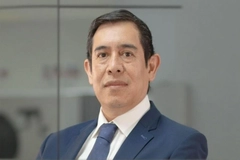Sidel Mexico leverages growing demand for returnable PET and glass bottles
Key takeaways
- There is strong consumer demand for returnable glass and PET packaging in Mexico, driven by sustainability trends and government regulations.
- Sidel has expanded returnable bottling lines for Grupo Gepp, featuring EvoFILL Glass and Hydra washers for high-speed, energy-efficient processing.
- PET is gaining popularity for its convenience, while glass remains a premium choice, especially for beer and soft drinks in Mexico’s returnable packaging market.
Packaging Insights speaks to Asencion Sanchez, account manager at Sidel Mexico, about beverage container material, reuse demands, and how these demands translate into Sidel’s Mexico operations.
Sidel Mexico recently supplied Grupo Gepp, PepsiCo’s exclusive bottler in the country, with expanded returnable PET and glass bottling lines.
What can you tell us about Sidel Mexico’s operations and the national beverage market landscape?
Sanchez: Sidel Mexico is part of the Americas’ customer management, and we serve in Mexico as a commercial and services office. We are located in Guadalajara, Mexico, and employ close to 300 people.
Sidel Mexico services customers from Mexico to Ecuador, while the rest of the countries in Latin America are managed by our Sidel Brazil office.
What are Sidel Mexico’s latest returnable glass solutions and washers?

Sanchez: Sidel’s EvoFILL Glass (a probe filler) and Hydra bottle washer are last-generation solutions for glass and plastic returnable bottles. They combine hygiene, flexibility, and performance.
The filler enables high-speed filling of up to 80,000 bottles per hour. It reduces product waste, removes the need for chilling with high-filling temperature capabilities, and delivers major savings in energy, water, chemicals, and CO2.
The Hydra bottle washer is a high-speed double-end washer, able to process up to 120,000 bottles per hour. The bottles can be used for beers, juices, water, and other drinks. It also provides gentle handling, efficient rinsing, and product quality.
How significant is consumer demand for returnable packaging in Mexico and Latin America overall?
 1.webp) Sidel Mexico discusses returnable PET and glass bottle growth.Sanchez: In Latin America, as in other parts of the world, sustainability in packaging is trending. Consequently, there are now more requests from customers for returnable and glass bottles, as well as regulatory pressure from the government. The government is requesting more environmentally friendly solutions, and as a result, companies and brand owners are adopting returnable solutions to reduce waste and carbon footprint, especially with returnable packaging.
Sidel Mexico discusses returnable PET and glass bottle growth.Sanchez: In Latin America, as in other parts of the world, sustainability in packaging is trending. Consequently, there are now more requests from customers for returnable and glass bottles, as well as regulatory pressure from the government. The government is requesting more environmentally friendly solutions, and as a result, companies and brand owners are adopting returnable solutions to reduce waste and carbon footprint, especially with returnable packaging.
We observe a significant trend in returnable packaging compared to other packaging types — we expect a 5–6% increase between 2025 and 2033. But for producers, this is difficult. They are facing challenges because the process of collecting and sorting these kinds of returnable bottles is very complex.
Do you notice a difference in consumer demand for plastic versus glass?
Sanchez: Yes, the returnable PET is gaining traction due to its lightweight and shatter-resistant properties. What we see here in Mexico is that it is convenient and appealing for families. It is easy to transport and handle for customers and producers.
In Mexico, the plastic returnable bottles are sold in local convenience stores rather than supermarkets. Glass returnable bottles are mostly sold because of the premium image they give to the product, especially for the beer and carbonated soft drink categories.
Can returnable packaging solutions in Mexico serve as a model for other countries?
Sanchez: Yes, Mexico has a long story with refillable PET and glass bottles. It started with the refillable PET bottles in the 1990s, and in fact, it has always been present in the market since then. But now it's coming back with a huge growth, and it's supported by a strong collection system put in place by the biggest beverage players in the country.
Here in Mexico, and other countries, the challenge is the need for a complex structure to collect and sort. But overall, in Mexico, we have a very well-established infrastructure. If this process aligns with the beverage companies, it can deliver significant environmental benefits by cutting virgin plastic use and reducing emissions.













